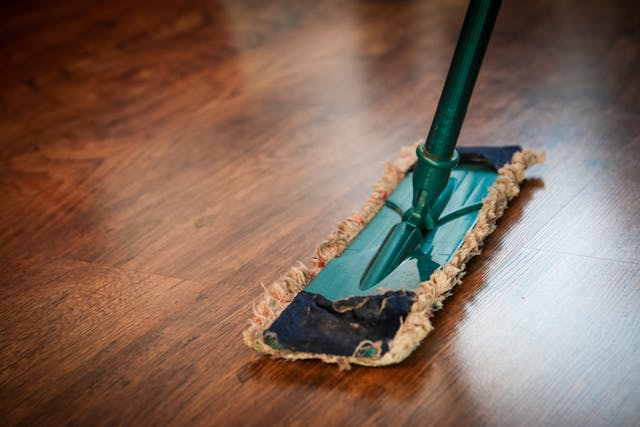Are you a landlord looking to maximize the safety and value of your rental property? Ensuring that your home not only meets but exceeds state and local habitability requirements is crucial.
This means adhering to essential health and safety codes that protect both your investment and your tenants.
By focusing on safety and maintenance, you’ll attract quality tenants who appreciate a secure living environment and are more likely to stay long-term, pay their rent on time, and report issues promptly.
Drew Doheny Property Management has crafted this comprehensive guide to help you achieve just that. We’ll dive into seven proven tips to keep your home—and your investment—safe and thriving. Keep reading to learn more!
Secure the Rental Property
Enhancing the security of your rental property is a proactive step that not only safeguards your tenants and home but also boosts your rental’s appeal.
By investing in security measures, you can attract quality long-term tenants with greater ease.
Consider upgrading to sturdy, high-quality doors and windows with reinforced frames. Equip doors with deadbolts and secure locks to prevent unauthorized access.
Installing a comprehensive security system with alarms and motion sensors can offer added protection. Don’t overlook the importance of proper outdoor lighting; well-lit exteriors can effectively deter potential intruders, especially after dark.
.jpg)
Have a Meticulous Screening Process
Finding the right tenants—those with solid credit histories, positive rental backgrounds, and stable employment—is crucial for a successful rental experience. This requires a thorough screening process.
To achieve this, ensure that every applicant completes a detailed rental application, and verify their information. This typically involves contacting previous landlords and employers, as well as conducting credit and background checks.
If you’re unsure about managing this process yourself, consider hiring a professional property manager.
A reputable local property management company understands exactly what to look for. They also ensure that the screening process complies with state fair housing laws, providing you with peace of mind and protecting your investment.
Draft Clear Lease Terms
A proper lease agreement is key to maximizing tenant satisfaction and minimizing potential disagreements.
When it comes to the security of the tenant and your property, you’ll want to be clear on certain things such as:
- Promptly notify the landlord of any safety concerns. These can include things like faulty wiring, broken locks, or water leaks.
- Follow any safety guidelines that the landlord has provided them with.
- Ensure doors and windows are securely locked, especially when leaving or sleeping.
- Don't share keys or access codes with unauthorized individuals.
Keep Your Property Properly Maintained
Property maintenance is an ongoing responsibility when it comes to investment properties.

A well-maintained property is attractive to both prospective and existing tenants. It also abides by the local health, safety, and building codes.
As a landlord, you’ll want to schedule regular inspections and stay on top of repairs and maintenance. During property inspections, make sure to be on the lookout for things like:
- Structural damage, such as cracks on walls or floors.
- Signs of mold, leaks, or mildew.
- Functionality of heating and cooling systems.
- Signs of leaks, damage, or missing shingles on the roof.
- Functionality of the smoke and carbon monoxide detectors.
Your inspection checklist should cover both the property’s exterior and interior. As for repairs, make sure that you respond to any requests within a reasonable time frame.
Insure Your Home Against Common Perils
The state of Georgia regularly faces many types of natural disasters, including tornadoes, hurricanes, severe storms, floods, and wildfires. With that in mind, as a landlord, it only makes sense to insure your investment against such common disasters.
Go for a cover that covers all possible eventualities and every aspect of damage likely to take place. Generally, landlord insurance coverage includes the following:
- Damage to the property itself.
- Damage to your personal belongings, such as appliances and furniture.
- Legal and medical fees if you’re held liable for an injury on the rental premises.
- Lost rental income if your property becomes uninhabitable for whatever reason and the tenant moves out.
You may also want to start requiring tenants to subscribe to a renter’s insurance policy. That’s because a landlord’s insurance cover only covers the landlord and their property and not the tenant’s belongings.
Familiarize Yourself With Georgia Landlord-Tenant Laws
Landlord-tenant laws are there to protect both you and the tenant. As a landlord, you must know them to fully understand your legal responsibilities.
You’ll want to know what the Georgia warranty of habitability says about a unit’s liveability, for instance.

First off, as a GA landlord, you can only rent out a habitable property. At the very minimum, it must not have any of the following issues:
- Lack of running water.
- Lack of essential amenities, such as electricity.
- Infestations of insects, rodents, or other pests.
- Structural defects, such as faulty wiring, sagging ceilings, or an unstable foundation.
- Mold growth that can lead to respiratory issues and other health problems.
- Unsafe entryways or exits.
- Lack of proper sanitation, such as proper garbage disposal facilities.
State law requires that landlords respond to repair requests from tenants promptly. Specifically, you must make the repairs within a “reasonable time” after being notified.
Hire a Property Manager
Hiring a property manager can offer significant relief by streamlining your rental operations and boosting your return on investment (ROI). A skilled property manager can quickly fill vacancies with high-quality tenants and diligently care for your property, ensuring it remains a valuable asset.
For a comprehensive approach, consider choosing a full-service property management company. This type of service provides a complete suite of solutions, handling everything from tenant screening to maintenance, and helping you achieve optimal results with minimal effort on your part.
Conclusion
For sustained success as a landlord, safeguarding your investment is crucial. By prioritizing the safety and security of your property and tenants, you can enhance your return on investment and ensure a smooth rental experience.
If managing these aspects feels overwhelming, the Drew Doheny Property Management Team is here to help. As a leading full-service property management company in Richmond Hill, we offer expert support and comprehensive solutions tailored to your needs.
Contact us today to learn how we can assist you in protecting and maximizing your rental investment!
